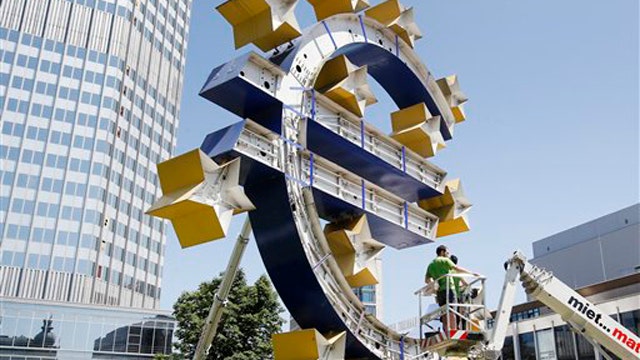A top European Union leader warned against any predictions of a straightforward resolution to Greece's financial crisis Tuesday while in France for a meeting of European Parliament members.
"A solution is not going to appear overnight," European Commission President Jean-Claude Juncker said Tuesday in Strasbourg, the Associated Press reported.
Juncker told lawmakers that any solution later at a meeting of the eurozone's 19 leaders in Brussels that "a solution is not going to appear overnight," adding that any quick resolution would likely be "overly simplistic."
He said one of the purposes later is to "restore order to the situation." He also displayed his anger at attacks on the European Union's executive branch.
"I think it is unacceptable for the European Commission to be deemed terrorists by the Greek government," he added.
Greek Prime Minister Alexis Tsipras and new finance minister Euclid Tsakalotos are on their way to Brussels for meetings aimed at restarting bailout talks.
"Quite clearly the ball lies in the court of the Greek government," said Juncker.
Dutch State Secretary for Finance Eric Wiebes says Greek representatives need to come up with a serious package at the meeting of eurozone finance ministers if fresh bailout talks are to make any progress.
"I hope they bring a very serious proposal in their luggage," Wiebes said as he arrived an hour early for the start of the meeting in Brussels. "Because it is only worth continuing to talk on the basis of a very serious proposal. I can't imagine the proposal would be less serious than the proposal that was already on the table."
At a meeting between the two leaders in France, German Chancellor Angela Merkel and French President Francois Hollande urged Tsipras and other Greek leaders to negotiate in earnest with fellow eurozone leaders.
"It is now up to the government of Alexis Tsipras to make serious, credible proposals so that this willingness to stay in the eurozone can translate into a lasting program," Hollande said, according to Sky News.
Merkel pressed for "precise proposals" from Tsipras' government.
Greek banks are projected to remain closed until at least Thursday, Sky News reported, as Greek citizens will be held to an approximate $65 daily withdrawal limit from ATMs.
Amid signs that the banks were fast running out of cash, there are growing concerns about what will happen to people's savings. Banks have been shuttered for over a week and cash withdrawals have been limited to 60 euros a day.
Giorgos Stathopoulos, a 46-year-old civil servant said many ATMs had run out of 20-euro notes, effectively reducing the daily limit to 50 euros.
"The problem is for those of us who don't have big deposits, what happens with our savings, that is the concern," he said.
And Giorgos Kafkaris, a 77-year-old pensioner, is hopeful about improvements. "I believe something better will happen," he said.
Meanwhile, European stock markets opened solidly ahead the meeting between Tsipras and the other European leaders in Brussels.
Germany's DAX index was up 0.4 percent while the Stoxx 50 index of leading European shares rose 0.2 percent.
The country's EU commissioner said he's optimistic that a new Greek finance minister and opposition parties' backing for Tsipras could smooth negotiations between Athens and its European creditors.
Commissioner Guenther Oettinger told Deutschlandfunk radio Tuesday that Tsakalotos "doesn't have the same attitude as his predecessor. He knows the figures, the facts, he knows our reform proposals ... and he knows that we are flexible."
Germany's vice chancellor, Sigmar Gabriel, called the Greeks' 'no' vote result a breach of eurozone rules while speaking with reporters in Berlin, according to the country's English language news outlet, The Local.
German officials insist that, even after its voters rejected more austerity in a referendum, Greece must accept conditions for any new aid.
Germany's biggest-selling newspaper knows who it wants to see at Tuesday's emergency summit of eurozone leaders in Brussels: the Iron Chancellor.
The Bild daily's front page Tuesday featured an image of Chancellor Merkel in a Prussian-era spiked helmet. "No new billions for Greece," its headline read. "Today we need the Iron Chancellor."
That's how Otto von Bismarck, the 19th-century leader under whom Germany was unified, was known.
The Associated Press contributed to this report.









































